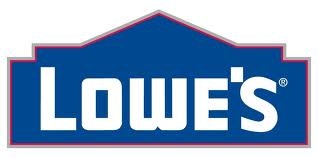Rivals Lowe’s Companies, Inc. (NYSE:LOW) and The Home Depot, Inc. (NYSE:HD) have battled it out in retail of hardware and other household goods for years. As might be expected, the two are frequently compared to each other in the market: Home Depot, the larger-cap market leader, and Lowe’s, the smaller company but arguably a better value. Regardless of what happens in their industry, the two stocks have generally tended to move together (and, given that their betas are fairly close to 1, they have tended to move with the broader market as well). Over the last year Home Depot has outperformed, returning 75% versus a 50% gain at Lowe’s. Both stocks have risen on the expectation of a housing recovery that may fuel demand for home improvement.
So far the companies haven’t seen much improvement in their business. In its most recent quarter Lowe’s reported a slight fall in revenue which helped drive a 10% fall in earnings compared to the same period a year earlier. Home Depot saw 12% earnings growth, primarily through margin expansion as revenue only increased 2%. So the larger company (Home Depot currently has about twice as many employees and an $86 billion market capitalization compared to $33 billion at Lowe’s) is doing better so far, but as we’ve mentioned its stock price has also risen and may have outpaced its business’s advantage. Partly because of its market leadership position and partly due to its better recent performance, Home Depot trades at higher valuation multiples in the stock market. Its trailing P/E is 21 versus 19 at Lowe’s; based on analyst estimates Home Depot’s forward P/E is 17 and its five-year PEG ratio is 1.3 compared to 14 and 1.1, respectively, at the smaller company. Lowe’s also pays a slightly higher dividend yield.
Lowe’s made it onto our list of the ten most popular services stocks among hedge funds for the second quarter of 2012, as 49 hedge funds and other large investors whose 13F filings are in our database reported a position. Edgar Wachenheim’s Greenhaven Associates owned 12.4 million shares of the stock at the end of June, and therefore reported a position in the company worth over $350 million at that time (see more nine-figure positions from Greenhaven Associates). Home Depot had its own backers, but it wasn’t as popular. Columbus Circle Investors, managed by Donald Chiboucis, reported owning 3.3 million shares at the end of the second quarter, though this was a 21% decrease from the first quarter. Research more activity from Columbus Circle Investors. We would say that hedge funds therefore appear to be preferring Lowe’s, and its discount based on trailing and expected earnings does make it appealing.
Big-box retailers Target Corporation (NYSE:TGT) and Wal-Mart Stores, Inc. (NYSE:WMT) don’t have quite the same industry dynamics due to their focus on discounted consumer goods, but they do act as competitors in some areas. These companies have lower multiples as they aren’t as purely exposed to expected growth in housing: earnings multiples are between 13 and 16. However, they both delivered low revenue growth last quarter versus a year ago. Lumber Liquidators Holdings Inc (NYSE:LL) is another home improvement related company (though, at only $1.3 billion, it has a considerably smaller market capitalization than either Home Depot or Lowe’s). It more than doubled its earnings last quarter compared to the same period in the previous year, and its revenue rose 20%; the stock has more than tripled over the last year. It now trades at 39 times trailing earnings and at 28 times the sell-side’s estimates for next year. It is, obviously, a better growth play but even given this growth it might not be as good a value as the larger stores.
The big-box retailers may be a better value overall, but if investors want exposure to an upside in housing as well the home improvement stores could make for good buys. We generally would say that Home Depot, as a market leader, should carry a slightly larger multiple on its earnings than Lowe’s and that is exactly what we see; therefore, we would say that based on past performance the two companies are fairly priced relative to each other. Based on hedge fund activity we would suggest Lowe’s as the better buy but it is a close call and we wouldn’t argue too strongly against Home Depot.


